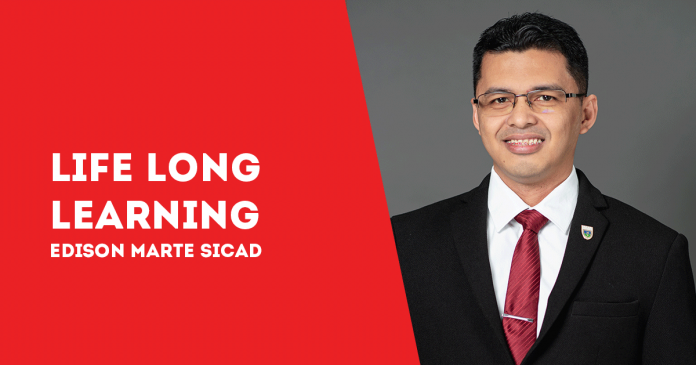
BY EDISON MARTE SICAD
WOULD it be proper for a Social Studies teacher to allow criticism of government officials as part of classroom discussion?
Social issues are mostly divisive. And while some may be fence-sitters, there are those who have situated themselves from either side of the fence.
Students, who get most of their information from social media platforms, can be highly inquisitive, downright mean, or totally attached to a particular point of view. And of course, Social Studies teachers can also be very opinionated.
Such a mixture could be a powder keg; a spark is all it takes.
A healthy classroom discussion could begin from diagnosing society’s ills. The therapy could then be the freedom of expressing one’s opinion about the subject matter: not to prove anyone wrong; nor malign and belittle the beliefs of others; nor force others to agree with you (if there
is such a thing).
I sometimes find it surprising that there are those who get irritated or shocked — or “become depressed” — if they encounter a negative comment.
Freedom of expression goes both ways — to the point of being libelous. When you enter the arena of social media, there is no way that everyone will just be nice to you. Others will post comments just to trigger certain reactions — in short, to rain on your parade. The saying “He who angers you controls you.” has never been this good.
Now, if a teacher is asked about the issue of VP Sara’s confidential funds, how will he/she reply? Obviously, the teacher does not have or cannot gather all the information about the issue. Will the teacher just proceed to the next lesson? Answer another question? Promise to discuss it next time?
A senior teacher once told me that Social Studies teachers must see to it that at the end of their class, the students must feel more love and loyalty — patriotic is a bit much — towards the country. Students must, despite the ongoing tragicomedy in the present administration, be hopeful about their future. Students must, despite the farcical show of loyalty in the august halls of Congress, still believe that we are a government of laws and not of men.
That sincere public service — like accessible quality education — is the core value of our elected “honorable servants.”
But if teachers, as part of professionalism, should be transparent in their views (thus making the class discussions truthful), can they express a highly critical opinion?
It is true that you cannot just bite the hands that feed you. In a government setup (no pun intended), despite the so-called designation of permanent or regular employment, things can still get messy if the hands do their dirty tricks.
Then how can teachers inspire their students to love their country if classroom discussions are restrained by fear and truth jeopardized by a curriculum?
Are teachers facilitators of learning? Or are they instruments of historical distortion?/PN




